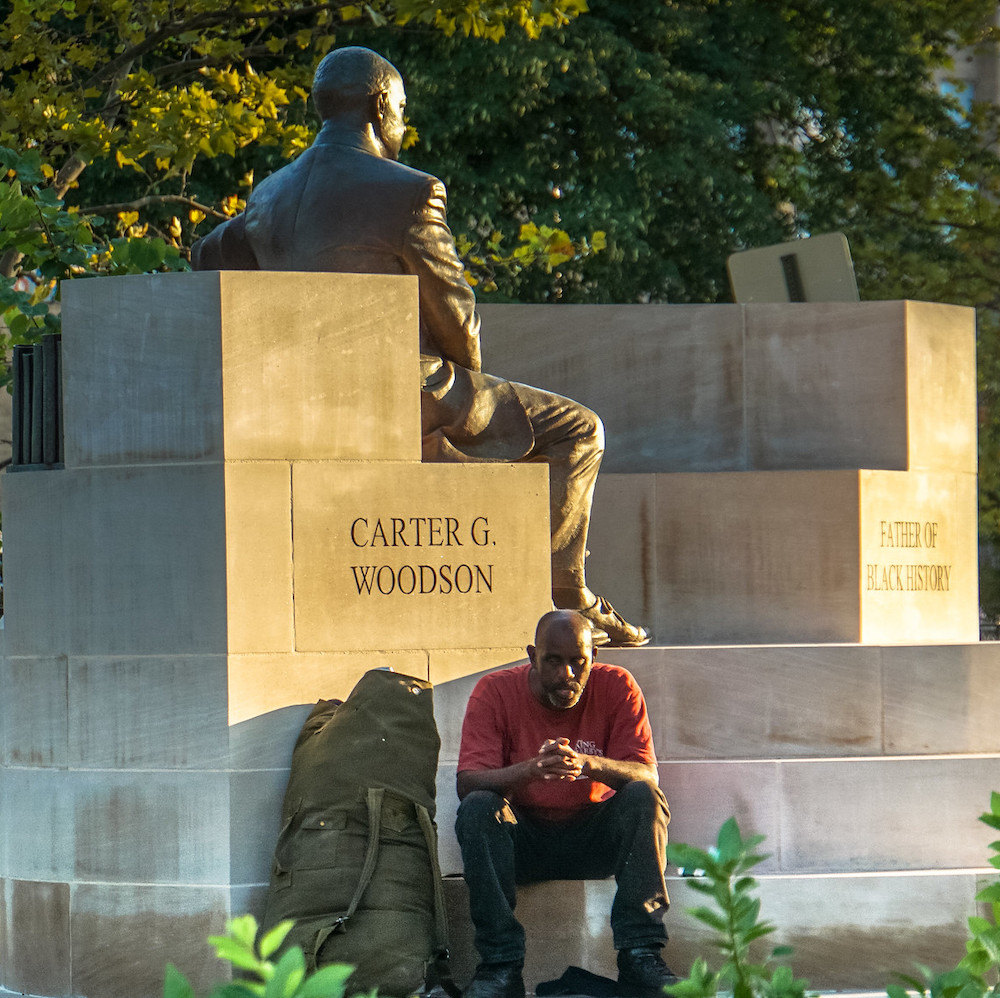
Read our 2022/23 Impact Report
In our Impact report we share that we proudly hosted 73 mentoring sessions for social enterprises and charities in the past year.

Black History Month is older than you might think. It started out as a week back in 1926 by US historian Carter G Woodson, who had recently spent a year writing his ‘Journal of Negro History’. The takeup of the teaching of black history was slow at first, but by 1929, a majority of US states were participating in Black History Month.
Kent State University in Ohio (a place also known for student activism against the Vietnam War) later proposed a month-long focus on black history, something that first happened in 1970. It was recognised by US President Gerald Ford in 1974 and began to be celebrated in the UK in 1987, thanks to Ghanaian Akyaaba Addai-Sebo, who was working at the Greater London Council at the time. For those looking to educate themselves about black history in the UK, David Olusoga’s books are recommended.
In recognition of Black History Month, we asked three social enterprise leaders what it meant to them. Here are their responses:
“Black History Month should mean celebrating black history, accomplishments, resilience and hope. However, it seems to me to be a momentary break from the routine of racial bias, ignorance, and social exclusion of black people.
“Whilst so much has been achieved in terms of raising awareness of black history, underpinning cries for equality and acceptance, I do however wish our collective identities and rightful place in the world wasn’t still a case that needed to be made.

“To be clear Black History Month is needed. My hope is that its message crosses communities and resonates beyond one month.” – Jones Oviawe (pictured above), founder and CEO of Money Story Technologies, a financial wellbeing coaching app that helps people to develop positive financial behaviours.
“Black History Month means that we, the black community, get a dedicated calendar slot for others to be reminded of our ancestors contributions, of our current achievements and successes and what a difference we have made to this earth.

“I live black history all year long. I especially resonate with the Windrush scandal and struggles. Although my family were not as impacted by this as others, I have helped a few Windrush survivors. Having had a DNA test in 2020, and being passionate about cultural and social impact, October’s physical events celebrating and showcasing us are more important than ever before as we live through this pandemic.” – Saundra Glenn (pictured above) who runs the Diversity in Social Enterprise UK Facebook group.
“For me Black History Month is an opportunity to celebrate black culture and the fantastic efforts and achievements of black individuals throughout history. Within this, it is important to understand and recognise the specific context of UK Black history too.
“Whether we are children or adults, there is always more we can learn about black history and the impact it has on us all today. Black History Month acts a reminder of how far we have come with regards to racial equality, but also how much work there still needs to be done.

“With regards to the workplace, this month provides an opportunity for businesses and organisations to review and reflect on their own workforce, policies & procedures, HR practices and services; and whether they are inclusive and proactively challenge discrimination.” – Dionne Williams (pictured above), Managing Director of Forward Carers, a support organisation for UK carers.”

Read our 2022/23 Impact Report
In our Impact report we share that we proudly hosted 73 mentoring sessions for social enterprises and charities in the past year.

Social entrepreneurs partner to help homeless and refugees
Proving you’re never too young to be a social entrepreneur is 17 year old Jacob Bell, whose candle making has led to a partnership with one of the poster boys of social enterprise.

How does it feel to appear on Dragons’ Den?
Rene Perkins of CityMaaS, who appeared on the show during the most recent run, reveals the truth about appearing on the perennial television favourite.